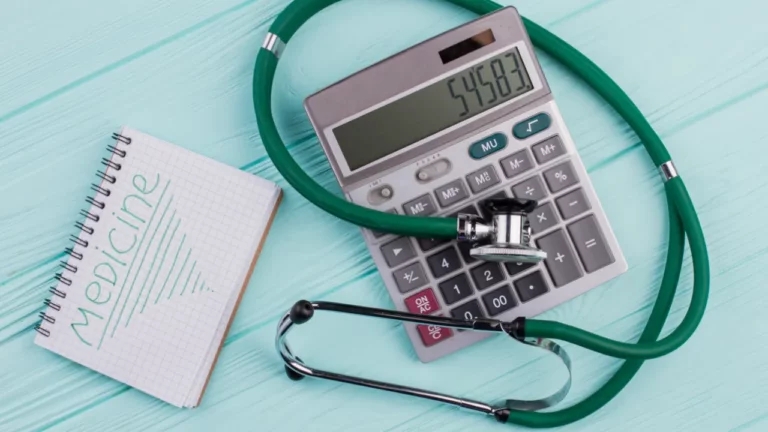Self-care is any activity routine that we do in order to take care of our physical, mental, and emotional health. Self-care can help you avoid being sick or burned out, improve your mood, reduce anxiety, and have a lot of other benefits. You need to plan something for yourself in order to maintain a healthy and balanced lifestyle at work or school and in your personal or professional world. Through individually determined, proactive activities like setting your goals and recognizing some of the stresses in your life, how they affect you and how you will overcome them, are just a few examples.
Devoting time to accomplishing some important things each day to nourish every part of ourselves helps us live healthier, happier, and more fulfilling lives. A well-built personalized self-care plan nourishes and enhances your mind, body, and soul and improves your overall well-being. Here are the six reasons why everyone needs a personalized self-care plan:
1. Guides you holistically
From a mindfulness point of view, you need to be well equipped with a plan that will serve as your guide in dealing with your life. A self-care plan will guide you and give you a quick overview of what to do with your life to achieve a certain goal. For example, one of your goals for your self-care plan is to maintain a specific healthy weight. Focus on a plan that will truly guide you to take certain actions to achieve that particular weight. Having a plan helps you establish daily activities and routines that will guide you while holding you accountable and responsible for your life.
2. Control and prevent negative circumstances of your life
Building a personalized self-care plan is like designing a roadmap that is unique for you to follow in moments when you can be in control and take some preventative measures, where you are directing your best moves in your crucial and worst moments. Having a self-care plan takes the guesswork out of what to do and where to turn in moments of crisis, giving you a heads-up on how to respond to the situation at hand. When you have a customized plan, it will be easier. You will feel more in control of your circumstances, which will prevent you from being in a chaotic situation. Self‐care monitoring keeps you in control because it includes a process of observing yourself for changes in signs and symptoms. Self‐care management is used by people to stay on track as they respond to signs and symptoms and even circumstances when they occur.
3. Preserves physical health
The World Health Organization described self-care as “the ability of individuals, families, and communities to promote health, prevent disease, maintain health, and cope with illness and disability with or without the support of a healthcare provider.”
Self-care is defined as a naturalistic decision-making process that will lead to the prevention and management of chronic illness, with key components of self-care maintenance, self-care monitoring, and self-care management. Just say, for instance, that you want to be healthy and be free of cardiovascular diseases and stroke. Specific self‐care behaviors such as diet and exercise will help you improve health outcomes. The more you get involved in activities that promote good hygiene, nutrition, and an active lifestyle, the more likely you are to strengthen your immune system while keeping away from diseases. People who engage in self‐care maintenance stick to those behaviors and activities necessary to maintain physical and even emotional stability as well.
4. Improves mental health and well-being
Mental well-being refers to the strategy you use when moving through life and how you view goodness in your life. Those who are not suffering from mental illness still need to work on their mental well-being and strive to become the best version of themselves and live a purposeful life. According to psychologists, the World Health Organization, and other experts, mental well-being goes down to your thoughts and feelings. For example, how you manage stress and anxiety. When you are unable to cope with stress, you increase your chances of developing anxiety, depression, burnout, and, in the worst-case scenario, total life destruction. Creating a personalized self-care plan is crucial when it comes to managing stress and anxiety. It also helps you get along with feelings of depression more easily.
When we develop and do self-care, the parasympathetic nervous system is activated, allowing your mind and body to relax. For instance, some of the best self-care practices that counteract your stress response are yoga, meditation, and deep abdominal breathing.
5. Enhances productivity
Productivity is not just working more and doing more until you eventually burn out, but it is about doing what needs to be done to function at your highest potential and your work performance will naturally improve. Prioritizing self-care is the key to becoming more productive at home and in the workplace. Experts explain that people who practice self-care have better cognitive abilities, including better focus and concentration. As a result, they tend to produce more.
6. Strengthen personal relationships
Building a personalized self-care plan does not only make you a better individual, but it makes you a better friend, work colleague, or partner. Bringing your best self to a relationship leads you to strengthen your connection with those around you.
You could involve your loved ones or any relationship goals in your self-care plan. Having an outing or going for a mountain climb, swimming lesson, fitness activity at the gym, doing yoga, or a daily walk with your special someone or family, for example, is a great opportunity to bond and practice self-care together.
How DrKumo Helps
DrKumo helps you achieve your personalized self-care plan. DrKumo’s Remote Patient Monitoring solutions help you monitor your condition and be guided towards a healthy lifestyle. It directly connects with your healthcare provider or clinician at anytime, anywhere, and keeps you on a healthy track. DrKumo can fit your customized self-care plan depending on your health target goals and health outcomes.
Takeaway
Building a personalized self-care plan takes time and consistency to work. But it is the best intervention tool that keeps you on track to achieve your goal of being completely healthy. It is a fail-safe, customized by you, and filled with your favorite self-care activities, important reminders, and some other stuff to activate your self-care plan and goals.
Just keep your plan simple and choose the self-care activities that bring you joy and love to help you stick to your routine. Or it can also be as flexible as you need it to be. Do not be too hard on yourself when things do not go as planned. You have control over it. Always be kind to yourself along the way of executing your activities to achieve a healthy journey. As you evaluate your personal needs, you will discover some other important considerations that will help with your improvement. Just always remember that it is you who has the greatest impact on your own life.
References
- Why you need a self-care plan (and 5 ways to get started). (2021, October 6). BetterUp: The People Experience Platform. https://www.betterup.com/blog/self-care-plan
- What do we mean by self-care? (n.d.). World Health Organization. https://www.who.int/reproductivehealth/self-care-interventions/definitions/en/
- Self‐care for the prevention and management of cardiovascular disease and stroke: A scientific statement for healthcare professionals from the American Heart Association. (n.d.). PubMed Central (PMC). https://www.ncbi.nlm.nih.gov/pmc/articles/PMC5634314/
- (n.d.). California State University, Northridge. https://www.csun.edu/sites/default/files/SUN-Self-care-Plan.pdf
- How to create your own personalized self-care plan (step-by-step guide with a template!). (2022, January 25). Distress Centre Calgary. https://www.distresscentre.com/2021/01/how-to-create-your-own-personalized-self-care-plan-step-by-step-guide/
- Why you need a self-care plan. (2021, October 1). Mindful. https://www.mindful.org/why-you-need-a-self-care-plan/








